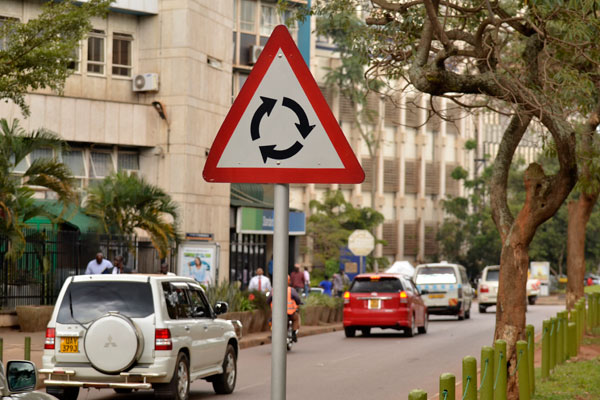Immigration issues will always be top of the list for any traveler and unless you get them right, many times the trip is jeopardized and you find you self in all sorts of problems.
Strategically positioned in the heart of Africa, Uganda is quite naturally open and welcoming to visitors both temporary and permanently from all over the world.
Increasingly, Uganda continues to position its self on the world arena; fast becoming a popular tourist destination in Africa – endowed with irresistible natural tourist attractions, amid the Ugandan economy recording continued economic expansion even as it weathers the impact of the global economic turmoil, setting the progressively more attractive investment opportunity in Ugandan business.
..And therefore, in recent times, more and more visitors from all over the world have found various reasons to come to Uganda.
Visitors need to go through formal channels in order to successfully carry out their immigration to Uganda.
Over the years, the population of immigrants has steadily increased ranging from foreign students to the multi-national employees and clearly the need for certain laws to smoothen the process for those that consider immigration to Uganda.
Accordingly, immigration to Uganda requires visitors to have a Ugandan visa to legally live and/ or work in the country. This can take on different types depending on the reason for your visit; work, study, marriage or any thing else but generally speaking, you will certainly need a Ugandan visa which you can quite easily get from the Ugandan embassy/ high commission in your country.
It is also possible to obtain a Ugandan visa at the entry and exit points of Uganda but I would rather you took this as a last option because it might be too late for you to put together the requirements for your application to be accepted let alone the unnecessary paper work involved that might take a lot of your time and therefore at risk of being fined and immediately deported at your own expense.
Once you have your visa, you can then go on and apply for a certificate of residence depending on whether you want to make your move permanent – this also takes on different types, otherwise, there are also different types of work permits to choose from if your reason is purely for work.
Other than that, there are exceptions to nationals from countries that have immigration agreements/ arrangement with Uganda. Nationals of these countries are issued with gratis (free of charge) visas on arrival but these can also be obtained from the Ugandan embassy/high commission in your country before you travel.
These countries include; Angola, Antigua, Barbados, Bahamas, Belize, Comoros, Cypress, Fiji, Gambia, Grenada, Italy ( Diplomatic passport holders only), Jamaica, Kenya, Lesotho, Malawi, Malta, Mauritius, Madagascar, Rwanda, Seychelles, Sierra Leone, St. Vincent & The Grenadines, Solomon Islands, Singapore, Tonga, Vanuatu, Zambia and Zimbabwe.
For details on the requirements, application and fees for a Ugandan visa, please contact the Ugandan embassy/ high commission in you country directly before you travel.
I strongly recommend you apply for a Ugandan visa in your home country, not here in Uganda – even with the gratis visa because you never know when your application is not successful.
Reason is simple…If you do apply for it in Uganda, you stand a risk of not being able to present all the necessary requirements for your application in that limited time – unless of course if you prepared well ahead but also once your application is rejected, there will be no other option but for the government of Uganda to send you back home sooner than later and at your expense.
If your immigration is for employment purposes, you will need to show proof of employment – usually an authentic letter from your employer clearly stating the job offer and any other terms of reference related to your employment and the details of your Ugandan employer. You will then be required to have a work permit – which takes on different types depending on which suits you best.
If you are here for studies, you will be required to produce evidence of enrollment. Once you have done your graduation, you have the option of finding a job if you intend to stay on in Uganda otherwise, you can be self employed and migrate to Uganda but you would need to bring in about US$ 100,000 in planned investment and you will require approval before implementing your project.
In all this, as you go about life in Uganda, make sure your immigration status is up to date with the laws of the land – like I have always said, I don’t love to see you in trouble with the authorities.
Also ensure you have up-to-date information regarding your country’s embassy in Uganda and their emergency contact details. They might not necessarily get you out of your troubles at the time but will certainly give you the best advice and will keep in constant touch with you and your family back home.
Another important criterion for immigration to Uganda is vaccination for yellow fever. You should provide an international certificate of vaccination for yellow fever in order to get your Ugandan visa. You also need to have health insurance too as medical treatments can be pretty expensive here. Once in Uganda, you can choose from the various local health insurances available.
















